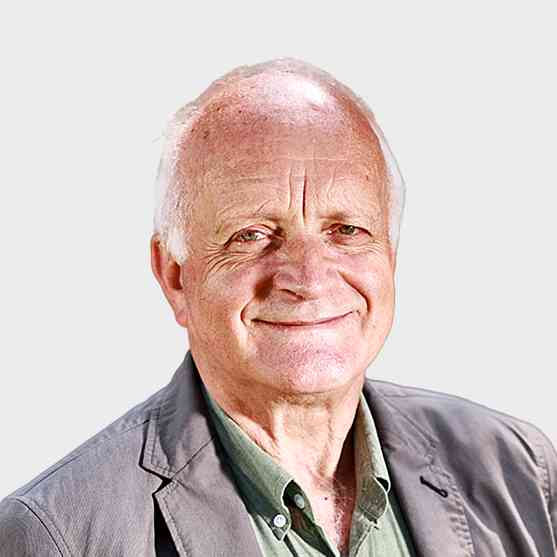This global pandemic has triggered unprecedented economic mayhem. Across the UK nearly one in four employees have been furloughed, the bulk of their incomes temporarily underwritten by the state. Leading politicians, including Scotland’s first minister, are openly contemplating adopting a universal basic income post-virus.
Great swathes of what we thought makes up a modern functioning economy may be living on borrowed time. Think aviation, where Warren Buffett, the Sage of Omaha, has dumped Berkshire Hathaway’s entire holdings in America’s four biggest airlines. Think universities over here, where ambitious campus expansions and an over-dependence on attracting fee-paying customers from China and North America has turned into talk of mergers and fears of institutions going bust.
Or think oil, where last month the price of US benchmark crude went negative for the first time on record. They couldn’t give that black stuff away. A price war between Russia and Saudi Arabia and collapsing demand in a locked-down world also pushed Brent, our own benchmark, as low as $16 a barrel. As I write it’s back above $30, but even at those levels investment programmes and jobs are facing significant cuts.
The economic impact of Covid-19 has been devastating, but it is not the only existential threat we all face. Our collective addiction to hydrocarbons and the impact their use is having on our climate represents another global challenge — one that we have, as yet, addressed with a lot less collective vigour. One of the many casualties of the pandemic has been November’s UN Climate Change Conference in Glasgow. COP26 is to be rescheduled some time in 2021. Another is the Scottish government’s own updated climate change plan. Originally due for publication last month, it is now delayed.
Some direct government action on tackling carbon emissions has survived the shock of viral lockdown. In February and again late last month, the UK government’s Department for Business, Energy & Industrial Strategy announced details of a £90 million package aiming to cut harmful emissions from heavy industrial sites and homes. Projects awarded funding cover all parts of Britain. A key objective, shared with initiatives from Portugal to Poland across mainland Europe and as far away as Australia, is to stimulate the production of hydrogen on an industrial scale, as a rival fuel to natural gas in homes and fossil fuels in transport.
The Scottish contender is led by Pale Blue Dot Energy, an energy consultancy based in Banchory. It is looking to revive ambitions to bring a commercial-scale carbon capture and storage, or CCS, solution to emissions in Scotland, notably at the Grangemouth petrochemicals complex on the River Forth. It wants to do this by utilising existing offshore oil and gas infrastructure at the St Fergus terminal north of Peterhead, a landfall for oil and gas from the North Sea fields over the past five decades. It calls that project Acorn CCS. The other strand to its ambition is Acorn Hydrogen, a plant to turn some of the natural gas still coming ashore into pure hydrogen to fuel things such as the area’s future bus fleet. It would be sited in Aberdeen.
Yet in the race to demonstrate commercial scaleability across the UK, Pale Blue Dot and Acorn are up against some heavyweight competition. One is trying to turn the industrial complex in Humberside in England, at present the UK’s highest emitter, into the world’s first zero-carbon cluster by 2040. Its 11 partners include Associated British Ports, Centrica Storage, Drax Group, Equinor and National Grid Ventures. But its lead spokesman is SSE Thermal, once one of Scotland’s two state-owned electricity suppliers.
SSE has long since outgrown its historic roots as the North of Scotland Hydro-Electric Board. It still controls a lot of Scotland’s hydro-electric dams and has built a lot of wind capacity on and offshore, but it has sold off its retail energy supply business and now sees itself as an energy asset developer. In the competition to build a greener future, the acorn is taking on a much bigger nut.
Alf Young is a visiting professor at the International Public Policy Institute at the University of Strathclyde
